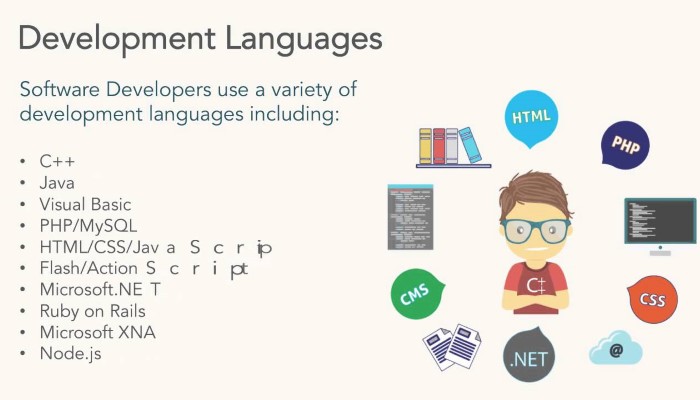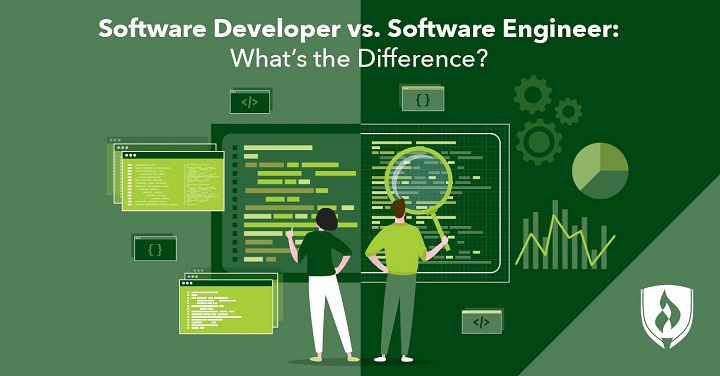Understanding Software Development

Software development encompasses the entire process of creating software applications, from conception to deployment and maintenance. It involves translating user needs and requirements into functional, reliable, and efficient software solutions. Software developers are primarily responsible for writing code, designing user interfaces, and implementing features based on specifications provided by stakeholders.
Key Responsibilities of a Software Developer
- Coding and Programming: Software developers are proficient in programming languages such as Java, Python, C++, or JavaScript. They write clean, maintainable code to build software applications according to project requirements.
- Software Design: Developers participate in the design phase of software development, creating blueprints and prototypes to visualize the end product. They collaborate with designers and stakeholders to ensure the usability and functionality of the software.
- Testing and Debugging: Quality assurance is an essential aspect of software development. Developers conduct testing procedures, identify bugs and errors, and debug code to ensure the reliability and stability of the software.
- Collaboration and Communication: Effective communication skills are crucial for software developers. They work closely with cross-functional teams, including designers, product managers, and other developers, to coordinate efforts and deliver projects on time.
Exploring the Role of a Software Engineer
While software development focuses on the implementation and execution of software projects, software engineering emphasizes a systematic and disciplined approach to the entire software development lifecycle. Software engineers are involved in the planning, design, construction, and maintenance of software systems, applying engineering principles to ensure the reliability, scalability, and security of software solutions.
Key Responsibilities of a Software Engineer
- System Architecture: Software engineers are responsible for designing the architecture of complex software systems. They analyze requirements, define system components, and establish the structural framework to support the desired functionality and performance.
- Algorithm Development: Engineering software solutions often requires the creation and optimization of algorithms to solve specific problems efficiently. Software engineers possess strong algorithmic skills and mathematical proficiency to develop algorithms tailored to project requirements.
- Performance Optimization: Ensuring the performance and scalability of software applications is a critical aspect of software engineering. Engineers employ techniques such as code optimization, caching mechanisms, and load balancing to enhance system performance and resource utilization.
- Risk Management and Compliance: Software engineers address potential risks associated with software development, including security vulnerabilities, data breaches, and compliance issues. They implement security measures, adhere to industry standards and regulations, and conduct risk assessments to mitigate potential threats.
Education and Skill Requirements
Both software developers and software engineers require a strong foundation in computer science, mathematics, and programming principles. However, the specific skills and qualifications may vary depending on the role and the industry.
Software Developer Education and Skills
- Bachelor’s Degree: Many employers require a bachelor’s degree in computer science, software engineering, or a related field for entry-level software developer positions.
- Programming Languages: Proficiency in programming languages such as Java, Python, C++, or JavaScript is essential for software developers.
- Problem-Solving Skills: Developers should possess strong analytical and problem-solving abilities to address technical challenges and optimize code efficiency.
- Version Control Systems: Familiarity with version control systems like Git enables developers to collaborate effectively and manage code repositories efficiently.
- Continuous Learning: The field of software development is dynamic and constantly evolving. Developers should stay updated with the latest technologies, frameworks, and best practices to enhance their skills and remain competitive in the industry.
Software Engineer Education and Skills
- Bachelor’s or Master’s Degree: Software engineers typically hold a bachelor’s or master’s degree in computer science, software engineering, or a related field. Advanced degrees may be required for specialized roles or leadership positions.
- Engineering Principles: Software engineers apply engineering principles and methodologies to software development, emphasizing system design, analysis, and optimization.
- Data Structures and Algorithms: Proficiency in data structures and algorithms is crucial for software engineers, enabling them to design efficient and scalable software solutions.
- System Design Patterns: Knowledge of design patterns and architectural principles helps engineers create modular, maintainable, and extensible software systems.
- Project Management: Software engineers may be involved in project management activities, including resource planning, scheduling, and risk management, to ensure the successful delivery of software projects.
Career Paths and Opportunities

Both software developers and software engineers have diverse career paths and opportunities for advancement within the technology industry. Depending on individual interests, skills, and career goals, professionals can pursue various specialization areas and roles within software development and engineering.
Software Developer Career Paths
- Front-End Developer: Focuses on creating user interfaces and client-side functionalities using web technologies such as HTML, CSS, and JavaScript.
- Back-End Developer: Specializes in server-side programming, database management, and application logic implementation using technologies like Node.js, Django, or Spring.
- Full-Stack Developer: Possesses skills in both front-end and back-end development, capable of building end-to-end software solutions independently or as part of a team.
Software Engineer Career Paths
- Systems Architect: Designs and oversees the architecture of complex software systems, ensuring scalability, reliability, and performance.
- DevOps Engineer: Manages the development, deployment, and maintenance of software applications, employing automation tools and cloud technologies for continuous integration and delivery.
- Software Development Manager: Leads software development teams, manages project timelines and resources, and aligns technical initiatives with business objectives.
In summary, while software developers and software engineers share common goals in creating software solutions, their roles, responsibilities, and skill sets differ significantly. Software developers focus on coding, design, and implementation, while software engineers adopt a holistic approach, applying engineering principles to the entire software development lifecycle. Both roles offer rewarding career opportunities in the ever-evolving field of technology, with ample prospects for growth, specialization, and innovation. Whether you aspire to become a software developer or a software engineer, acquiring the necessary skills, staying updated with emerging technologies, and pursuing continuous learning are key to success in this dynamic industry.

